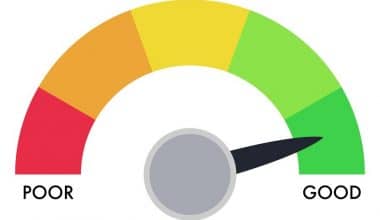A commercial insurance agent plays a pivotal role in the world of risk management and financial security. If you’re intrigued by the Commercial Insurance Agent job description, curious about the pivotal role of a Commercial Insurance Agent, interested in the potential Commercial Insurance Agent salary, or even wondering how to become a Commercial Insurance Agent, you’ve come to the right place. In this article, we’ll explore the multifaceted world of commercial insurance agents and provide valuable insights and a guide on their essential functions, lucrative salary potential, and the path to embark on this rewarding career journey.
What Is a Commercial Insurance Agent
A commercial insurance agent is a professional who specializes in helping businesses find and secure the right insurance coverage. They work as intermediaries between business owners and insurance companies. These agents assess a company’s unique needs, risks, and industry-specific requirements to recommend and customize insurance policies. They also help businesses understand the terms, conditions, and costs associated with different insurance options, ensuring that the coverage aligns with the business’s objectives and financial capabilities. Commercial insurance agents play a crucial role in protecting businesses from unforeseen risks and assisting them in making informed decisions to safeguard their operations.
Commercial Insurance Agent Job Description
A commercial insurance agent’s job description involves several key responsibilities. They assess a client’s business needs and risks to determine appropriate insurance coverage. They then identify suitable policies and customize them to match the client’s specific requirements and budget constraints. Commercial insurance agents also explain policy terms and conditions to clients, helping them make informed decisions. These professionals maintain relationships with insurance companies to stay up-to-date on the latest offerings and negotiate favorable terms for their clients. Additionally, they provide ongoing support, assisting clients with claim processing and adjustments to their policies as business needs change. Ultimately, the primary role of a commercial insurance agent is to protect and support businesses in managing their insurance needs effectively.
Role of a Commercial Insurance Agent
Commercial insurance agents play a pivotal role in assisting businesses with their insurance needs. They act as intermediaries between businesses and insurance companies, evaluating the unique risks and requirements of the client’s operations. These agents then recommend and customize insurance policies to address those risks and protect the business from financial setbacks.
A significant aspect of their role is to educate clients about the nuances of insurance coverage, helping them make well-informed decisions. They also negotiate policy terms and premiums with insurance companies, striving to secure the most favourable terms for their clients. Furthermore, commercial insurance agents maintain ongoing relationships with clients, providing support for policy adjustments, processing claims, and addressing any insurance-related questions or concerns that may arise. In summary, their role is to be a trusted advisor and advocate for businesses, ensuring they have the right insurance protection to manage risks effectively.
Commercial Insurance Agent Salary
The estimated total pay for a commercial insurance agent in the United States is $84,911 per year, reflecting the income from base salaries, commissions, and potential bonuses. On average, they earn a base salary of $62,912 per year, with the opportunity to increase their total pay through performance-based commissions and incentives, which can vary depending on the agency and the agent’s individual sales achievements.
The compensation for commercial insurance agents can also fluctuate based on factors such as experience, the geographic location of their employment, and the specific niche or industry they serve. Overall, this career offers the potential for competitive compensation, especially for agents who excel in building client relationships and achieving robust sales results.
How to Become a Commercial Insurance Agent
Becoming a commercial insurance agent involves several steps and requirements:
- Meet Eligibility Requirements: Typically, you’ll need a high school diploma or equivalent to start this career.
- Gain Relevant Experience: Start in an entry-level insurance role to understand the industry. Gain experience in selling insurance, managing clients, and understanding different insurance products.
- Obtain Required Licensing: You’ll need to obtain the necessary licenses. Requirements vary by state and may include pre-licensing education and passing a state exam.
- Choose a specialization: Commercial insurance covers various industries and areas. Specializing in a specific niche, like healthcare or construction, can be beneficial.
- Develop Product Knowledge: Understand the insurance products you’ll be selling thoroughly.
- Build a Network: Networking is crucial in the insurance industry. Building relationships with business owners, industry professionals, and potential clients is essential.
- Stay Informed:The insurance industry is constantly evolving. Stay updated on industry trends and regulations.
- Consider Certification: Some organizations offer certifications for commercial insurance agents. These can enhance your credentials.
- Work for an Agency or Go Independent: You can work for an established insurance agency or start your own agency.
- Market Yourself: Create a strong online presence, develop marketing strategies, and establish your brand.
- Provide Excellent Customer Service: Building a strong reputation for providing top-notch service can lead to repeat business and referrals.
- Continue Education: Keep learning about new insurance products and evolving industry standards.
Is Commercial Insurance Difficult?
Commercial insurance can be challenging due to its complexity and the need to understand various industries and risks. It requires a deep understanding of different policy types and their intricate details, which can be demanding.
Additionally, the role of a commercial insurance agent involves building and maintaining client relationships, often requiring strong communication and sales skills. It can be challenging to educate clients about complex insurance options and help them make informed decisions. However, the difficulty also varies based on the individual’s background, experience, and the level of support and resources available within their agency. While it can be challenging, many find it rewarding and financially lucrative with the right knowledge and skills.
How Does a Commercial Insurance Work?
Commercial insurance works by providing financial protection to businesses. When a business purchases a policy, it pays a premium to the insurance company. In return, the insurance company agrees to cover specified risks and losses. These risks can include property damage, liability claims, business interruption, or other unforeseen events.
If a covered incident occurs, the business can file a claim with their insurance provider. The insurance company then assesses the claim and, if it is approved, provides financial support to help the business recover from the loss or cover legal expenses. The coverage and benefits can vary significantly depending on the type of policy and the specific needs of the business. Commercial insurance helps businesses manage risks and ensure that unexpected events don’t lead to severe financial setbacks, allowing them to continue their operations and protect their assets.
Read: DO I NEED BUSINESS INSURANCE? Why & When
Which Insurance Agents Make the Most Money?
Typically, agents who specialize in commercial insurance, particularly those who handle large corporate clients and complex policies, have the potential to earn the most money. This is because commercial insurance policies tend to have higher premiums, and the commissions for selling such policies can be substantial.
Another area where agents can earn a significant income is selling life insurance and annuities. These policies often involve long-term commitments and higher premiums, leading to more substantial commissions. However, it’s important to note that an agent’s income is also influenced by factors such as their sales skills, experience, geographic location, and the specific insurance products they offer. Ultimately, the potential for high earnings is present in various insurance niches, but it often depends on the individual agent’s ability to build a strong client base and close sales effectively.
What Is the Difference Between Commercial Insurance and Regular Insurance?
Commercial insurance is designed to protect businesses from various risks and liabilities, while regular insurance, often referred to as personal insurance, is meant to safeguard an individual or their personal assets.
Commercial insurance typically covers risks associated with business operations, such as property damage, liability claims, business interruption, and employee-related issues. In contrast, regular insurance includes policies like auto insurance, homeowner’s insurance, and health insurance, which are tailored to an individual’s personal needs. The scope and coverage of commercial insurance are usually broader and more complex due to the specific risks associated with business activities.
Another key difference is that commercial insurance often involves higher policy limits and premiums compared to regular insurance. Commercial policies need to provide more extensive coverage because businesses often have more substantial assets and face potentially greater risks than individuals. In contrast, personal insurance aims to protect an individual’s home, vehicle, health, or life, with tailored coverage to suit individual needs and budget.
What Is the Hardest Type of Insurance to Sell?
Selling life insurance can indeed be a challenging endeavor. The initial hurdle often revolves around discussing sensitive topics related to mortality, which can make potential clients uncomfortable. The idea of contemplating one’s own death and planning for it can be emotionally charged and difficult for many to address.
Moreover, life insurance policies involve long-term commitments, requiring clients to envision financial protection for their loved ones in the event of their passing. The financial aspect of premiums and the complexities of various policy types can further complicate the sales process. To effectively sell life insurance, agents need to possess strong communication skills, empathy, and the ability to guide clients through these emotional and financial considerations, demonstrating the value of such coverage in providing peace of mind and security for their families.
Why Are Insurance Agents So Rich?
Insurance agents can earn substantial incomes due to several factors. First, they often work on commission, which means their earnings are directly tied to their sales. Agents who excel in selling insurance products, particularly those with high premiums, can earn significant commissions.
Additionally, insurance agents build a client base over time, which can result in recurring commissions as clients renew their policies and add new coverage. Successful agents are skilled at retaining their existing clients while attracting new ones. Furthermore, agents may receive bonuses or incentives for meeting sales targets set by insurance companies, providing an additional source of income.
It’s important to note that while some insurance agents can earn substantial incomes, this isn’t true for all agents. Earnings can vary widely based on factors such as experience, the type of insurance they sell, geographic location, and the level of effort they invest in building and maintaining their client base. While the potential for high income exists in the insurance industry, it’s not a guaranteed outcome for all agents, and it often requires hard work, strong sales skills, and a commitment to providing value to clients.
Read: National General Insurance: Review 2023
Why Should I Work With an Insurance Broker?
Working with an insurance broker can be advantageous for several reasons. Brokers are insurance experts who can help you navigate the complex insurance market, saving you time and effort by helping you understand various policies and coverage options. They assess your specific needs and tailor insurance solutions to match your requirements, ensuring you have the right coverage for your unique situation.
Insurance brokers have access to a wide network of insurance providers, which means they can obtain competitive quotes and find the best policies that align with your budget and preferences. They also provide ongoing support, helping you with claims processing and any adjustments to your policies as your needs change. Additionally, brokers can help you navigate complex or niche insurance markets, such as commercial insurance, where specialized knowledge is crucial. In summary, working with an insurance broker offers you expert guidance, access to a broad range of insurance options, and personalized service to secure the most suitable coverage for your needs.
What Does an Insurance Broker Do on a Resume?
On a resume, an insurance broker should highlight their key responsibilities and achievements. This might include managing client relationships, assessing insurance needs, and tailoring coverage solutions. Mention any experience in negotiating policy terms, handling claims processing, and providing excellent customer service.
Additionally, emphasize your ability to analyze insurance products, access a broad network of insurance providers, and secure competitive quotes for clients. Highlight any relevant certifications or licenses, such as a state insurance licence or industry-specific designations like Chartered Property and Casualty Underwriter (CPCU) or Certified Insurance Counselor (CIC). Lastly, showcase any measurable results, such as achieving sales targets, retaining clients, or expanding the client base, to demonstrate your impact and success in the role.
FAQs
Can an agent be fired?
Under the acts of the parties, an agency can be ended by the acts of either the principal or the agent. This is in conformity with Section 154, which provides that an agency is terminated when the principal revokes his power or the agent ceases to conduct business for the agency.
Which insurance agent earns the most money?
While there are many other types of insurance (ranging from vehicle insurance to health insurance), the most profitable employment in the insurance industry is that of a life insurance salesperson.
Who has authority over an agent?
The person or thing on whose behalf and under whose supervision an agent acts. For instance, your boss at work Agent: A person who promises to act on behalf of and in place of his or her principal, subject to the control of the principal.
- State Farm Small Business Insurance: 2023 Review
- HOW TO GET BUSINESS INSURANCE: Easy Guide 2023
- HOW TO BECOME AN INSURANCE BROKER: Easy Guide
- TOP 11 BEST BUSINESS INSURANCE BROKERS 2023






